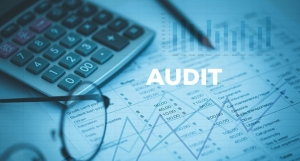عرض العناصر حسب علامة : مدققي الحسابات
جمعية المحاسبين القانونيين الأردنيين
تأسست جمعية المحاسبين القانونيين الأردنيين عام 1987 وتتمتع الجمعية بشخصية اعتباريه ذات استقلال مادي واداري
مجلس الشورى البحريني يوافق على مرسوم مدققي الحسابات
وافق مجلس الشورى في جلسته أمس برئاسة علي بن صالح الصالح رئيس المجلس على المرسوم بقانون بشأن مدققي الحسابات الخارجيين، والذي يهدف إلى النهوض بالمهن المحاسبية وتشجيع البحرينيين المؤهلين للالتحاق بهذه المهنة، فضلاً عن توفير نظام شفاف للترخيص لمكاتب تدقيق الحسابات.
Ph.D: Does Qualified Auditor Opinion Moderate the Relationship between Book Tax Differences and Firm Value
Purpose: This paper aims to examine the effect of qualified auditor opinion on the relationship between Book-Tax Differences (BTDs) and firm value in Egypt.
9 تعديلات على قانون مدققي الحسابات في الإمارات
أعلنت وزارة الاقتصاد عن 9 تعديلات جديدة على اللائحة التنفيذية المحدثة لقانون مهنة مدققي الحسابات في الدولة، والتي ستدخل حيز التنفيذ في يوم 13 سبتمبر/أيلول من العام الجاري.
رسالة ماجستير: مدى التزام مؤسسة المدن الصناعية الأردنية بتطبيق المعايير الدولية للتقارير المالية
هدفت هذه الدراسة إلى التعرف على مفهوم معايير المحاسبة والإبلاغ المالي الدولية وتفسيراتها ونطاق تطبيقها ومدى التزام وتقيد مؤسسة المدن الصناعية الأردنية ذات الاستقلال المالي والإداري بتطبيقها عند إعداد التقارير المالية وكيفية إجراءات التطبيق من حيث (القياس، والاعتراف، والعرض، والإفصاح).
معلومات إضافية
- البلد الأردن
دراسة ماجستير: دور المدقق الخارجي في التكليف الضريبي في سوريا
يعتبر الإصلاح الضريبي في سوريا من أهم ما تسعى إليه وزارة المالية ويتمحور هذا الإصلاح حول عدد من النقاط أهمها التقليل من التراكمات الضريبية والوصول إلى علاقة جيدة بالمكلفين وتحديد الضريبة بشكل عادل ولا شك في أن تقدير الربح الخاضع للضريبة هو من أعقد جوانب العمل الضريبي لأن الوصول إلى التقدير حقيقي لوعاء الضريبة يعد شرطاً لازما لتحقيق مصلحة كل من المكلف والإدارة الضريبية ولتحقيق ذلك فإن التشريعات الحديثة أولت المدقق الخارجي مسؤولية إعداد واعتماد البيان الضريبي
دراسة ماجستير: أثر إلتزام المدقق الخارجي الأردني بالإجراءات التحليلية في الحد من ممارسات المحاسبة الإبداعية
أصبح الدور المفترض لمهنة المحاسبة والتدقيق محل شك لما شهدته العديد من الدول خاصة الولايات المتحدة الأمريكية من إنهيار العديد من الشركات الكبرى، وترجع معظم الدراسات الإنهيارات المفاجئة لهذه الشركات إلى ممارسة إدارتها أساليب معقدة لتغيير القوائم المالية مما ه عليه لتصبح بالصورة التي يرغبها معدو هذه القوائم، وهو ما يطلق عليه المحاسبة الإبداعية










